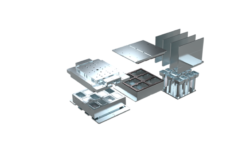Holocaust Poland tour
A Holocaust Poland tour is a profound and deeply moving experience that takes visitors on a journey through some of the most significant and tragic sites of the Holocaust. These tours offer an opportunity to reflect on the horrors of the past, honor the memory of those who perished, and educate future generations about the importance of tolerance, human rights, and the dangers of unchecked hatred. Poland, as the epicenter of many of the atrocities committed during World War II, is home to several key sites that are integral to understanding the full scope of the Holocaust.
Key sites on a Holocaust Poland tour
One of the most central and impactful stops on any Holocaust Poland tour is Auschwitz-Birkenau, the largest and most notorious of the Nazi concentration and extermination camps. Located near the town of Oświęcim, about 70 kilometers west of Kraków, Auschwitz-Birkenau has become a symbol of the Holocaust’s brutality. The camp complex, now a UNESCO World Heritage Site, is meticulously preserved as a museum and memorial. Visitors walk through the infamous “Arbeit Macht Frei” gate, explore the barracks where prisoners were held, and see the remnants of gas chambers and crematoria where millions of Jews and other victims were systematically murdered. The site’s museum offers extensive exhibits that provide personal insights into the lives of those who suffered there, including photographs, letters, and belongings left behind. Another significant site often included in these tours is Majdanek, located near Lublin in eastern Poland. Majdanek is unique in that it was captured nearly intact by the Soviet army, making it one of the best-preserved Holocaust sites. The camp’s gas chambers, crematoria, and barracks remain much as they were during the war, offering visitors a stark and sobering glimpse into the past. Majdanek’s proximity to the city of Lublin allows for a broader exploration of the region’s Jewish history, including visits to local synagogues and the Jewish cemetery. Treblinka, another key site, was one of the most deadly extermination camps, where nearly 900,000 Jews were killed. Unlike Auschwitz or Majdanek, Treblinka was almost entirely destroyed by the Nazis in an attempt to cover up their crimes. Today, the site is a poignant memorial, marked by symbolic sculptures and a field of stone markers representing the communities destroyed during the Holocaust. The starkness of Treblinka, with its absence of original structures, powerfully conveys the scale of loss and the effort to erase the evidence of mass murder.
The importance of education and remembrance
Holocaust Poland tours are not just about visiting historical sites; they are educational journeys that emphasize the importance of understanding and remembering the past. These tours are often guided by experts in Holocaust history, who provide detailed narratives that contextualize the events within the broader scope of World War II and the Nazi regime’s genocidal policies. Through lectures, discussions, and visits to museums and memorials, participants gain a deeper understanding of the causes, execution, and consequences of the Holocaust. Many tours also include meetings with Holocaust survivors or their descendants, whose personal stories add a profound and humanizing element to the historical facts. These encounters often leave a lasting impact, as survivors share their experiences of unimaginable suffering, resilience, and the struggle to rebuild their lives after the war. The opportunity to hear firsthand accounts of the Holocaust reinforces the importance of preserving these memories and continuing to educate future generations. Participating in a Holocaust Poland tour is an intensely emotional experience. Walking through the sites where so many suffered and died can be overwhelming, and many visitors find themselves grappling with complex feelings of grief, anger, and sorrow. These tours often include moments of reflection, such as candle-lighting ceremonies or moments of silence, allowing participants to process their emotions and pay their respects to the victims. For those with personal connections to the Holocaust—whether descendants of survivors or those whose families were affected—the experience can be particularly poignant. Visiting the places where relatives were imprisoned or killed can provide a sense of closure or connection, deepening one’s understanding of their family history and the broader historical context. In a time when Holocaust denial and distortion are on the rise, Holocaust Poland tours play a crucial role in combating misinformation and preserving the truth of what happened during World War II. By bearing witness to the physical evidence of the Holocaust, participants in these tours become part of the effort to ensure that such atrocities are never forgotten and never repeated. These tours also serve as a powerful reminder of the dangers of intolerance, racism, and authoritarianism. They highlight the importance of promoting human rights, diversity, and the values of democracy and justice in today’s world. Through education and remembrance, Holocaust Poland tours contribute to a global commitment to prevent genocide and mass atrocities in the future.
Tours of Poland for seniors
Tours of Poland for seniors are thoughtfully designed to offer a rich cultural experience while accommodating the specific needs of older travelers. These tours typically feature slower-paced itineraries, comfortable accommodations, and convenient transportation options, ensuring a relaxing and enjoyable journey. Highlights often include visits to historic cities like Kraków and Warsaw, where seniors can explore UNESCO World Heritage sites, such as the Old Towns and Auschwitz-Birkenau. Additionally, these tours may include scenic excursions to the Tatra Mountains or the Masurian Lake District, offering both cultural enrichment and opportunities for leisure. With knowledgeable guides and well-planned itineraries, these tours provide seniors with an accessible and memorable way to experience the beauty and history of Poland.
Genealogical tours
Genealogical tours offer a unique and deeply personal way to explore your family history by visiting the places where your ancestors once lived. These tours are specifically designed for those interested in tracing their heritage and connecting with their roots in a meaningful and immersive way. Unlike traditional vacations, genealogical tours are tailored to your family’s specific history, often involving visits to ancestral villages, local archives, churches, and cemeteries that hold the keys to your past. One of the most appealing aspects of genealogical tours is the level of personalization they offer. These tours typically begin with detailed research conducted by professional genealogists who help you uncover your family’s origins. Once your ancestry has been mapped out, a customized itinerary is created that takes you to significant locations tied to your family’s history. Whether it’s a small village in Italy, a town in Eastern Europe, or a city in Ireland, these tours allow you to walk in the footsteps of your ancestors and experience the places they called home. Genealogical tours often include the services of expert guides who specialize in local history and genealogy. These guides not only provide historical context but also help you navigate local records, such as birth certificates, marriage records, and land deeds, which can offer invaluable insights into your family’s past. In many cases, these tours also facilitate meetings with distant relatives, allowing for emotional and often transformative reunions.



